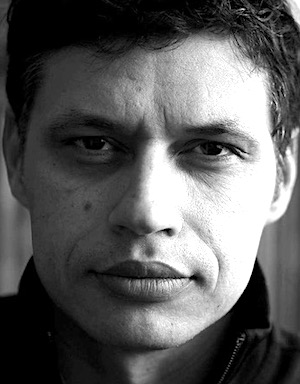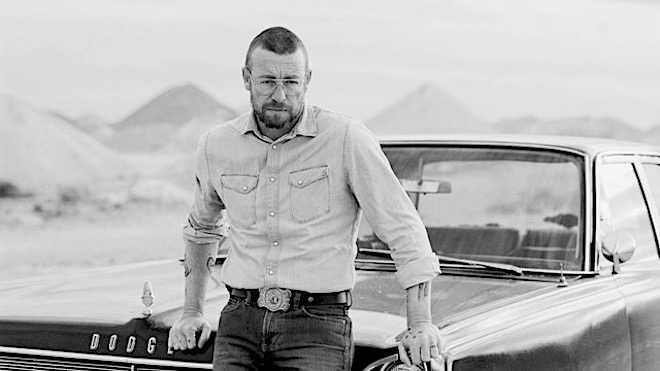Cold case opened - then shut ... Young Aboriginal girl goes missing from a bleak outback town ... Police indifference and brutality ... Miss Lumière reviews Ivan Sen's masterful new film Limbo
 Thankfully, the only black and white feature of Indigenous director Ivan Sen's new film Limbo, is his hauntingly gorgeous widescreen cinematography.
Thankfully, the only black and white feature of Indigenous director Ivan Sen's new film Limbo, is his hauntingly gorgeous widescreen cinematography.
A true Australian auteur in the mould of Paul Cox, Sen writes, casts, directs, shoots, edits and scores most of his films, invariably to sublime effect.
Limbo is no exception. In fact it may well be his masterpiece.
Shot in the unforgiving light of outback South Australia, and set in a forlorn landscape pock-marked by years of opal mining, Limbo is a bleak and barren place to be, devoid of greenery and hope.
Isolated figures pick their way across the land as though negotiating bleached bones. The population (both black and white) literally scratches a bare living from the stony ground.
Boredom and dysfunction are everywhere.
This is where city cop Travis Hurley (Simon Baker) finds himself, dispatched on a mission to determine what happened to a young Indigenous girl, Charlotte Hayes, who went missing 20 years before.
 Ivan Sen: many degrees of light and shadeJust a few minutes into the film, we see Travis in his underground motel room, blithely shooting up, his torso covered in prison-style tatts.
Ivan Sen: many degrees of light and shadeJust a few minutes into the film, we see Travis in his underground motel room, blithely shooting up, his torso covered in prison-style tatts.
Simon Baker is so convincing in the role of a former drug squad cop who's become a private fan of substance abuse, he's almost unrecognisable.
Gone are the golden good looks; the sparkling blue eyes and tousled surfie hair of Breath, replaced by a buzz cut, over-sized wire aviator frames and a gait filled with macho weariness.
Setting out to make inquiries of the missing girl's family results in stonewalling by her embittered stepbrother Charlie (Rob Collins) who was once accused of involvement, and her wary sister Emma, a finely calibrated performance by Natasha Wanganeen.
A local white man, Leon, who the Indigenous community suspected of involvement in Charlotte's disappearance and was known to "like young black girls", has since died of dementia.
His elderly prospector brother Joseph (Nicholas Hope revisiting what his break-out role as Bad Boy Bubby might have become) is creepily evasive.
The atmosphere around town is as desolate and impenetrable as the landscape, but the deliberate slowness of Sen's direction opens the viewer to nuances of character and place.
While Travis doesn't seem all that committed at first, and the Hayes family has seen police indifference before - "no one fuckin' cares" - things begin to shift.
Charlotte's fractured family starts to open up and Travis begins to care.
He also begins to piece together what happened, and to comprehend the layers of damage the original investigation precipitated.
It's yet another case of police brutality and injustice meted out to Indigenous people, but Sen is intelligent enough and skilled enough to show it in a subtle, contemplative way.
 Simon Baker as copper Travis Hurley
Simon Baker as copper Travis Hurley
Limbo is no conventional police procedural with large themes, like Mystery Road or Goldstone, Sen's previous outback/western crime features.
Here the script is sparse and true, the performances uniformly contained (even the children) with Sen in full command of his oeuvre, tonally and visually.
In the end, the cold case re-opening is slammed shut from above.
What Travis knows cannot be put right, but we see a small sliver of hope in what he can put right.
In Sen's vision of limbo, life is not black and white, but many degrees of light and shade.